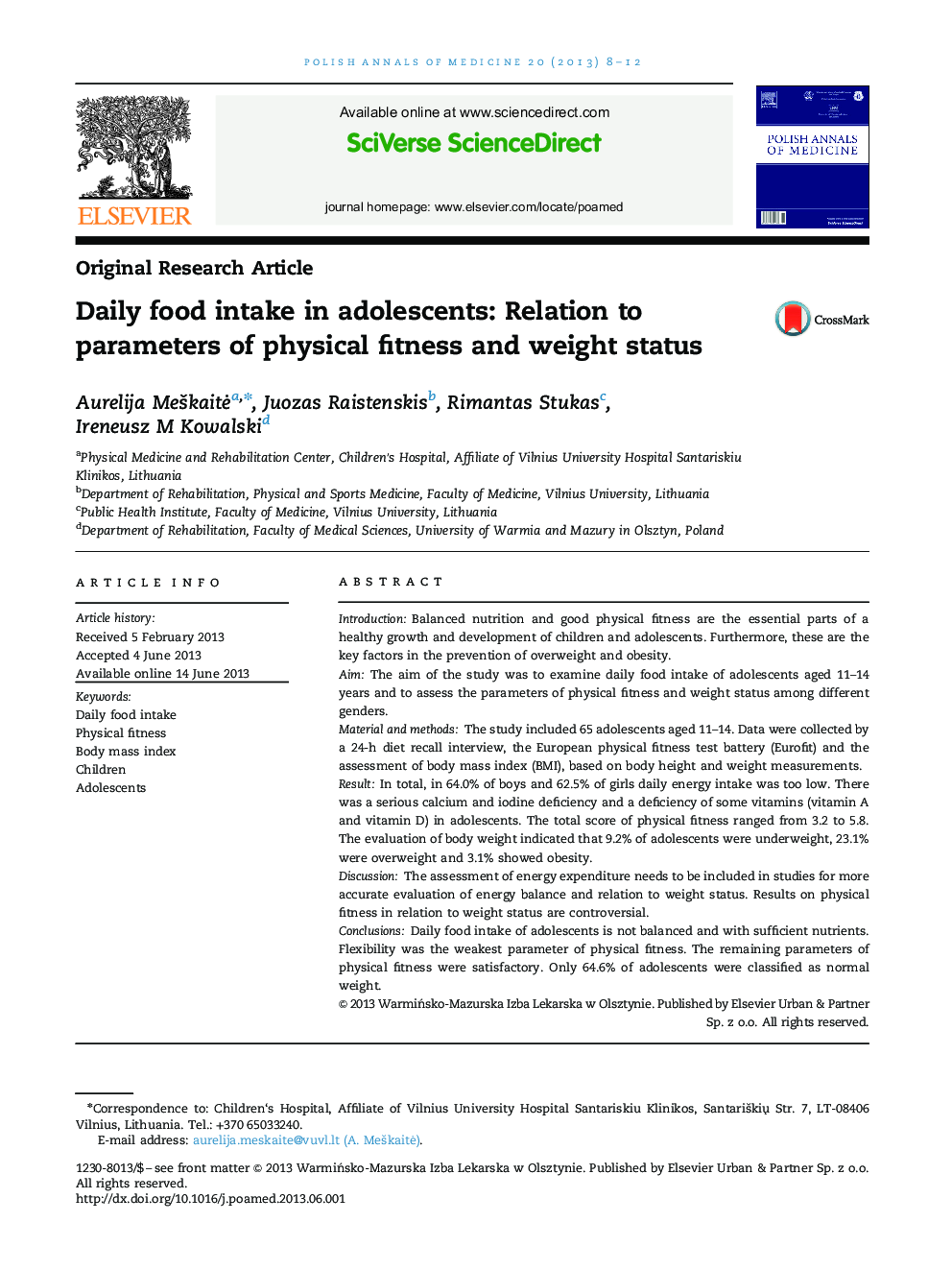| Article ID | Journal | Published Year | Pages | File Type |
|---|---|---|---|---|
| 2678728 | Polish Annals of Medicine | 2013 | 5 Pages |
IntroductionBalanced nutrition and good physical fitness are the essential parts of a healthy growth and development of children and adolescents. Furthermore, these are the key factors in the prevention of overweight and obesity.AimThe aim of the study was to examine daily food intake of adolescents aged 11–14 years and to assess the parameters of physical fitness and weight status among different genders.Material and methodsThe study included 65 adolescents aged 11–14. Data were collected by a 24-h diet recall interview, the European physical fitness test battery (Eurofit) and the assessment of body mass index (BMI), based on body height and weight measurements.ResultIn total, in 64.0% of boys and 62.5% of girls daily energy intake was too low. There was a serious calcium and iodine deficiency and a deficiency of some vitamins (vitamin A and vitamin D) in adolescents. The total score of physical fitness ranged from 3.2 to 5.8. The evaluation of body weight indicated that 9.2% of adolescents were underweight, 23.1% were overweight and 3.1% showed obesity.DiscussionThe assessment of energy expenditure needs to be included in studies for more accurate evaluation of energy balance and relation to weight status. Results on physical fitness in relation to weight status are controversial.ConclusionsDaily food intake of adolescents is not balanced and with sufficient nutrients. Flexibility was the weakest parameter of physical fitness. The remaining parameters of physical fitness were satisfactory. Only 64.6% of adolescents were classified as normal weight.
